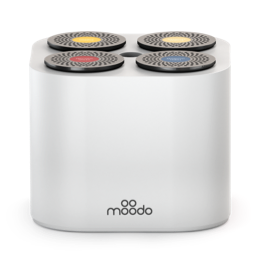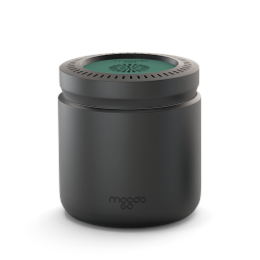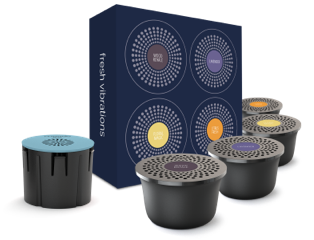What is Aromatherapy?
Our mental state is entirely driven by our senses. Apart from our awareness, our senses play an intimate role in our emotional state, knowledge, and perception. We learn the facts from a young age; there are five senses and they are sight, smell, taste, touch, and hearing. We develop our sense of touch in the womb and all the senses are somehow connected. However there are some sensations that are plainly difficult to explain. Have you ever tasted a juicy hamburger just by looking at it? Have you felt the warmth of an ocean breeze by closing your eyes and imagining a white beach? Our senses are deeply ingrained in our perception and can sometimes alter our reality. Our sense of smell is much less developed than in most animals, most likely due to the fact that our survival is not dependent on it. However as underdeveloped as it is, our sense of smell is the most sensitive one that we have.
How does smell affect memory?
Not only is our sense of smell the most sensitive that we have but it is also the most linked to our memory. Various studies show that smells trigger memories more than images. Our brain anatomy has a large part in this. The olfactory bulb, which begins inside the nose and runs along the bottom of the brain, is the first stop for new smells. The bulb is directly linked to two areas of the brain that govern emotion and memory: the amygdala and hippocampus. Scientists believe that our sense of smell triggers memory more than the other senses because those do not pass through these areas of the brain.
Due to our sensitive smelling, we are deeply affected by the smells around us – positively and negatively. The memories that can be triggered with our olfactory senses are accompanied with clear images and feelings of happiness, excitement, agony, and despair. Most studies show that adults experience “childhood memories” more than others because we encounter most of our smells as children. However, this just means that the older we get the more sensitive we are to foreign smells. This explains the passion for trying unfamiliar foods or ability to sniff out the one rotten vegetable in the fridge.
What are the best scents for studying?
As children, we are taught the art of memorization. Our educators teach us that in order to succeed in school we must learn to retain the maximum amount of information that we can. We memorize state capitals, presidents, and multiplication tables.
If smells can trigger childhood memories, then can they spark the answers we need at any given moment? According to the “Proust Effect”, we are not able to immediately summon the memories we want by associating them with specific smells because they are mostly subconscious. However, using aromas and certain odors can stimulate the brain, increase productivity and enhance memory capabilities.
Using fragrance diffuser with these smells while you are studying is a proven way to control stress and emotions to concentrate better on the material in front of you. Rosemary and Cinnamon are stimulants that make you more alert and focused, for sharper focus and an energy boost.
What are good calming scents for the classroom?
There is a lot of research that supports the effect of noise on grades and student attention span. Sound has a way of interrupting your train of thought – especially when you’re trying your hardest to concentrate. Teachers and educators are trying to find ways to combat the sometimes unavoidable classroom chatter by neutralizing it with smell. Introducing fragrance diffuser with certain essential oils can increase productivity, inspire creativity, and calm students of various ages.
A creative approach to classroom scents is designating certain aromas with different subjects. Lemon, Lavender, and Jasmine are known for their calming properties. For example, Grapefruit for math and Spearmint for history. Orange-scented aromatherapy could even create a germ-free environment. The results are subconsciously stimulating brain activity necessary to comprehend material.
How can scents stimulate the brain?
Scents and aromas can be used to arouse, and even reduce, brain activity in people of all ages. Researchers believe that essential oil molecules stimulate the amygdala and hippocampus and can influence your physical, emotional, and mental health. The olfactory cells have tiny hairs that recognize only one aroma. The process causes nerve impulses to travel to the limbic system, the part of our brain that is most concerned with emotions and instincts. This activity is widely believed by scientists to be a mood changer as the nerve signals alter brain chemistry.
Today, smart aroma diffusers can be the key to unlocking your desired moods at home, in the office, or while studying for an important exam. Moodo is an aroma diffuser that allows you to experience the right scent, in the right place, at the right time. By introducing a smart diffuser into your home, you can control it from a smart device through WiFi. Moodo offers different aromatic experiences in “scent families” that are just the right scent, when you need it most.










Moodo in the press
Moodo Smart Home Fragrance Box Review: Aroma Therapy For The Modern Age.
14 Innovative Startups That Prove We are Living in the Sci-fi Future
Moodo makes some great scent pods that provide unique and well-balanced aroma.
Moodo enables you to customize your scentscapes to match your mood.
“Moodo Review: Smart Scent Diffuser Works Its Magic”
79 Urban Outfitters Gadgets You Had No Idea You Needed but Now Can’t Live Without..
Fragrances Abound Through The Home Because of the Moodo Smart Aroma Diffuser
The 10 Best Smart Home Devices of IFA 2018
“The Coolest New Tech and Gadgets to Buy in 2018”
IFTTT is gaining steam as a viable way to connect smart devices…
50 New Smart Home Products That Caught Our Eye
The Best Tech Gifts to Give This Holiday Season
“Control the Way Your Home Smells From Your iPhone.”
“11 Techie Holiday Gifts for Early Adopters”
“Set the Mood with Moodo: the Next Big Smart Home Device?”